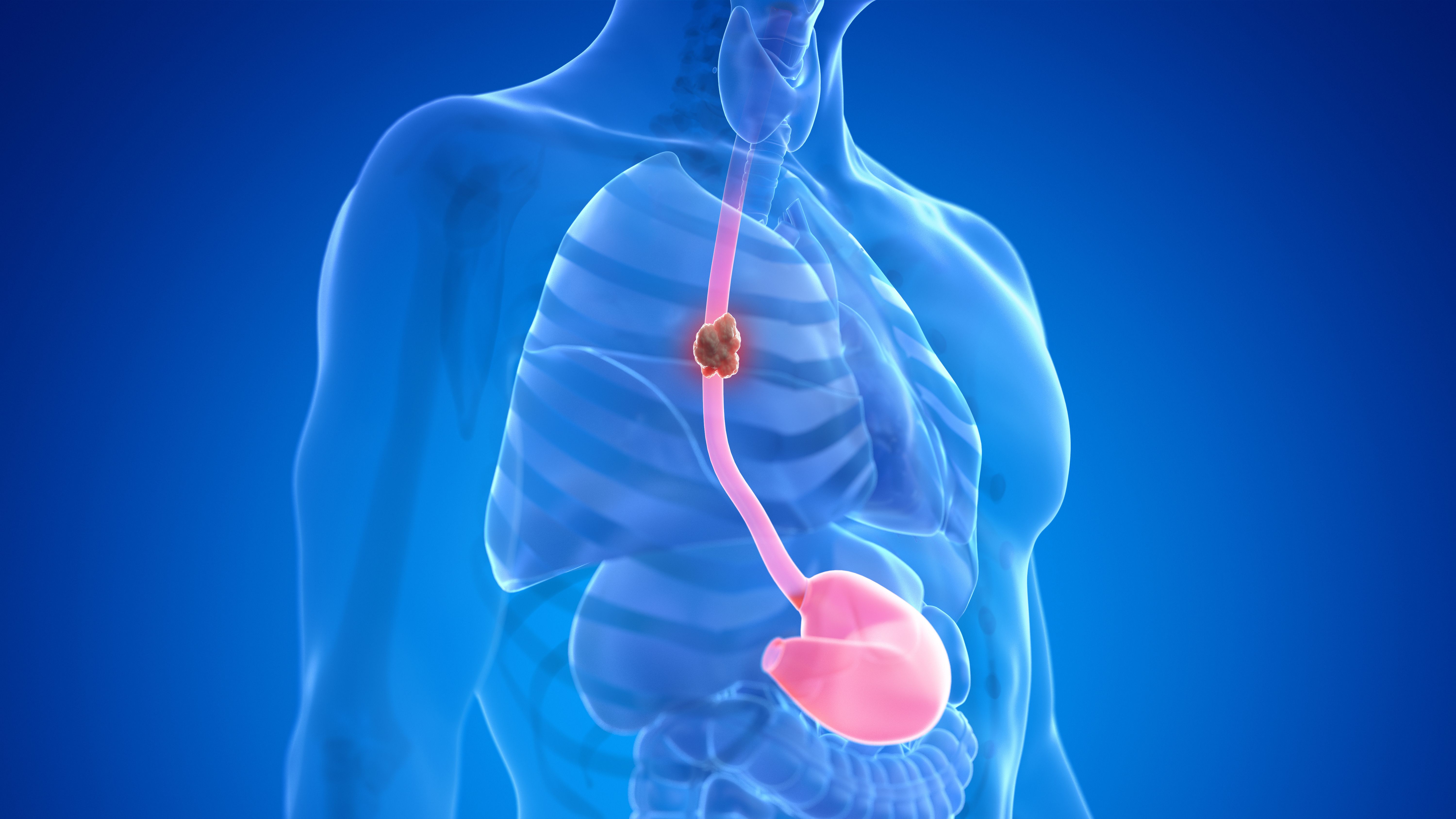9MW2821 Gains FDA Orphan Drug Designation in Esophageal Cancer
9MW2821 was granted an orphan drug designation from the FDA and is being evaluated for the potential treatment of esophageal cancer, as well as other cancers.

- 9MW2821, an antibody-drug conjugate (ADC) targeting Nectin-4, received orphan drug designation for treating esophageal cancer.
- A phase 2 study (NCT05216965) showed a 30% overall response rate (ORR) and 73.3% disease control rate (DCR) in patients with advanced esophageal cancer treated with 9MW2821.
- The FDA also previously granted a fast track designation to expedite the development of 9MW2821 for esophageal squamous cell carcinoma (ESCC).
An orphan drug designation has been granted by the FDA to 9MW2821, a novel Nectin-4-targeted ADC, for the treatment of patients with esophageal cancer.1
9MW2821 is the first site-specific conjugated novel Nectin-4-targeting ADC developed by Mabwell's ADC platform and automated high-throughput hybridoma antibody molecular discovery platform. The agent uses a unique linker technology and a streamlined conjugation process to precisely modify antibodies, which enables them to target and bind to Nectin-4.2
Multiple 9MW2821 have been conducted in China to evaluate the safety, tolerability, pharmacokinetic characteristics, and efficacy of 9MW2821 in patients with various advanced solid tumors.
3D rendered medically accurate illustration of esophagus cancer: © Sebastian Kaulitzki - stock.adobe.com

The FDA granted a fast track designation to 9MW2821 for the treatment of patients with advanced, recurrent, or metastatic ESCC in February 2024.3
As of February 20, 2024, findings from a phase 2 study showed that among 30 patients with esophageal cancer given 9MW281 at a dose of 1.25 mg/kg, the ORR was 30% and the disease control rate (DCR) was 73.3%. Of the 30 patients, 28 have undergone chemotherapy and immunotherapy.
At the 2023 European Society for Medical Oncology Congress, experts also presented on the findings from this trial, showing that as of April 27, 2023, 97 patients were enrolled and treated with 9MW281 at doses ranging from 0.33 to 1.5 mg/kg. The median age of patients was 57 years (range, 32-78).2
Of 39 patients in the trial treated with the agent at a dose of 1.25 mg/kg or higher, the ORR was 38.5%, the confirmed ORR was 33.3%, and the DCR was 84.6%. Among 18 patients with urothelial cancer, the ORR was 55.6%, the confirmed ORR was 50.0%, and the DCR was 94.4%.
Looking at safety for all 85 patients treated with 9MW281 at the 1.25-mg/kg dose, 63.5% and 35.3% of patients experienced any-grade and grade 3 or higher treatment-related adverse events (TRAEs), respectively. The rate of serious TRAEs was 16.5%, and TRAEs resulted in treatment discontinuation in 1.2%, dose reductions in 3.5%, and treatment interruption in 28.2% of patients, respectively.
Moreover, the most common TRAEs observed in the trial were decreased white blood cell count (any grade, 35.3%; grade ≥3, 17.6%), neutropenia (35.3%; 18.8%), nausea (18.8%; 0%), increased aspartate aminotransferase (22.4%; 1.2%), rash (17.6%; 1.2%), alopecia (17.6%; 0%), fatigue (17.6%; 1.2%), decreased appetite (17.6%; 0%), anemia (14.1%; 2.4%), vomiting (17.6%; 0%), and peripheral sensory neuropathy (16.5%; 0%).
In addition to esophageal cancer, 9MW2821is being studied in multiple other clinical trials, including for the treatment of urothelial and cervical cancers.1 A phase 3 study of 9MW2821 given as a monotherapy for urothelial carcinoma is expected to begin soon, and a phase 1/2 study (NCT06079112) is evaluating 9MW2821 as a combination therapy with a PD-1 inhibitor. Further, 9MW2821 alone for the treatment of cervical cancer is entering phase 2 with more than 280 patients having been enrolled in the study.
REFERENCES:
1. FDA grants orphan drug designation to 9MW2821. News release. Mabwell Therapeutics. May 6, 2024. Accessed May 9, 2024. https://tinyurl.com/sjh4wajc
2. Zhang J, Liu R, Gao S, et al. Preliminary results from a phase I/II study of 9MW2821, an antibody-drug conjugate targeting nectin-4, in patients with advanced solid tumors. Ann Oncol. 2023;34(suppl 2):S464. doi:10.1016/j.annonc.2023.09.1845
3. FDA grants fast track designation to 9MW2821. News release. Mabwell. February 25, 2024. Accessed May 9, 2024. https://tinyurl.com/2954va77
Neoadjuvant Therapy Could Improve Outcomes for Nasal and Paranasal Sinus Cancer
September 17th 2024Neoadjuvant chemotherapy prior to surgery and postoperative radiation therapy could improve organ preservation in patients with T3 and T4a nasal and paranasal sinus squamous cell carcinoma.
Read More